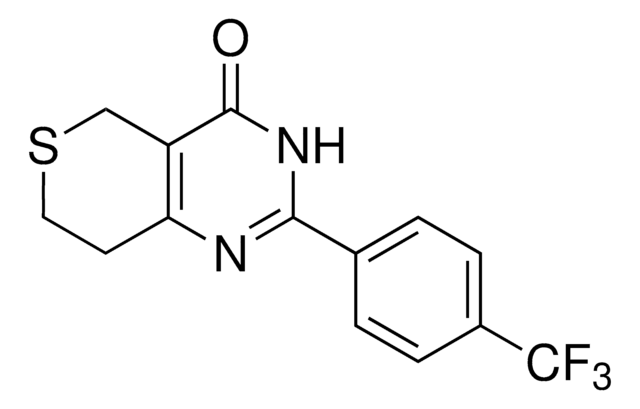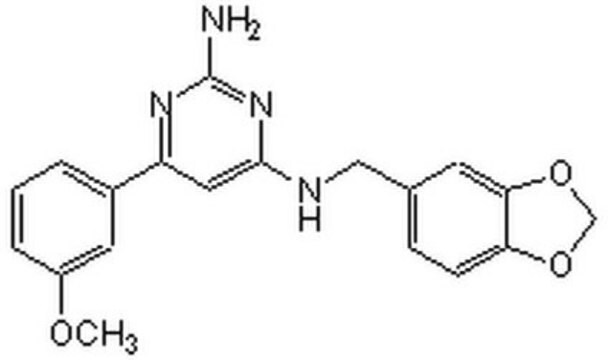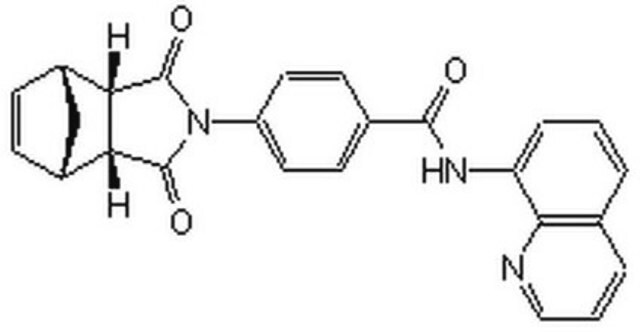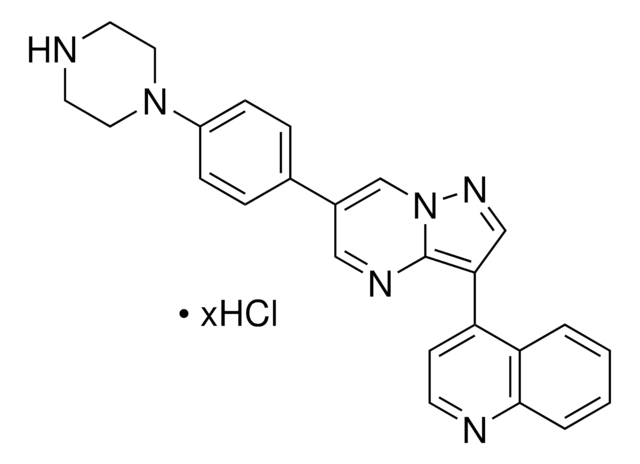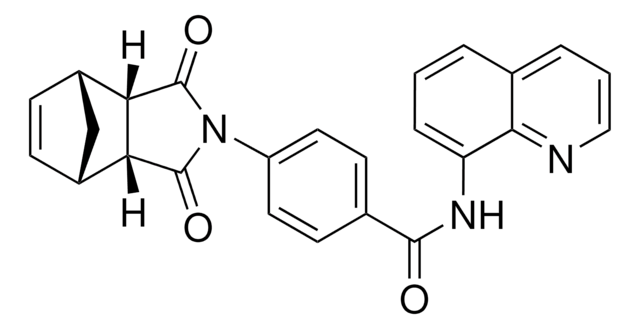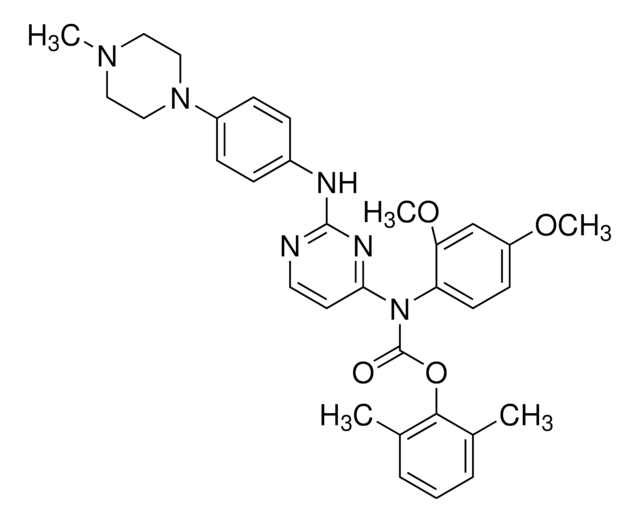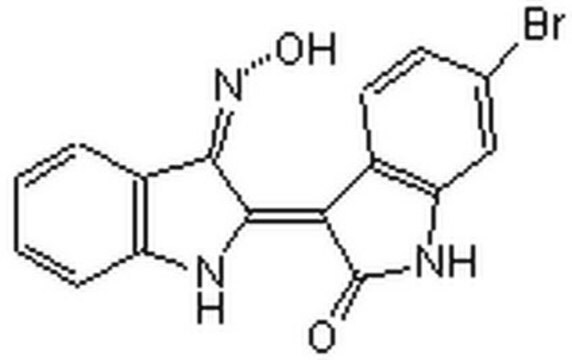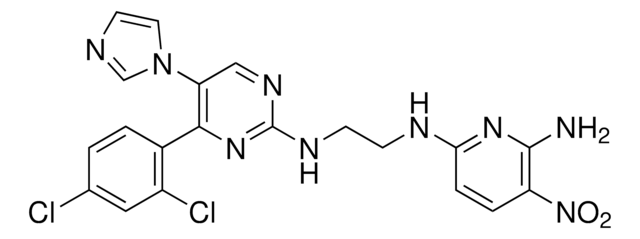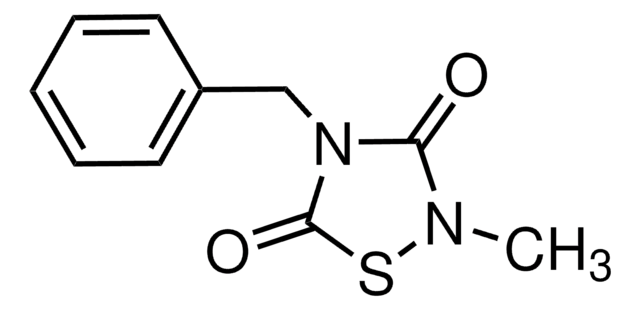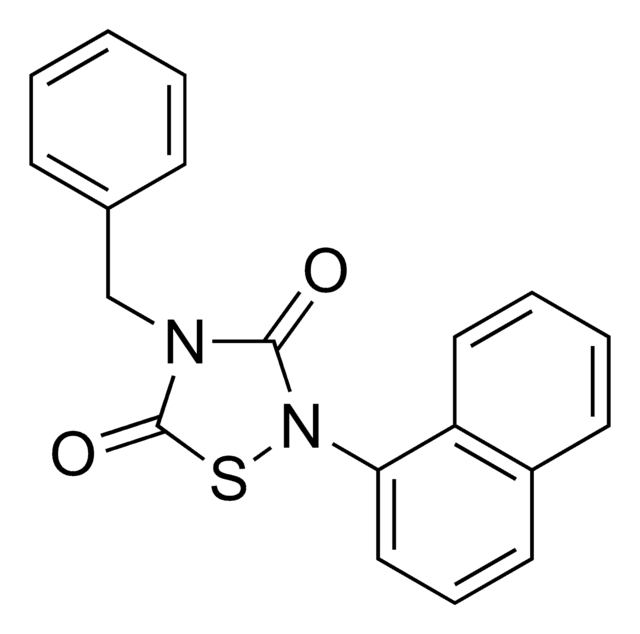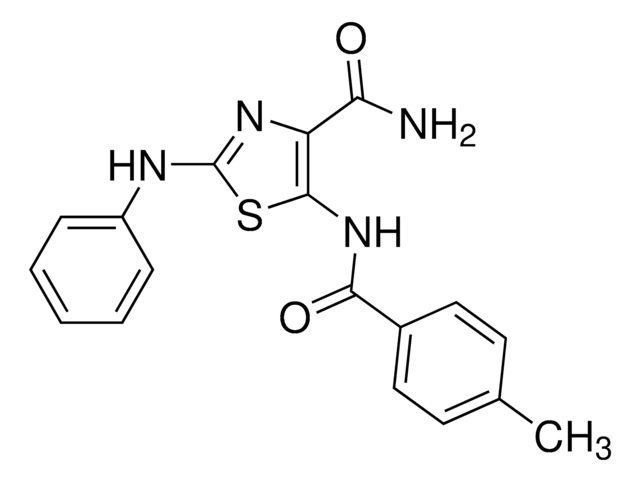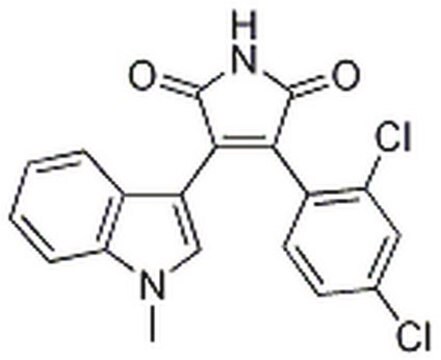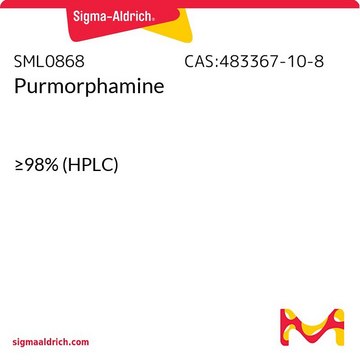B1686
BIO
≥98% (HPLC), powder, GSK-3α/β inhibitor
Synonym(s):
(2’Z,3’E)-6-Bromoindirubin-3′-oxime, 6-BIO, 6BIO
About This Item
Recommended Products
product name
BIO, ≥98% (HPLC)
Quality Level
Assay
≥98% (HPLC)
form
powder
storage condition
protect from light
color
dark red
solubility
DMSO: >5 mg/mL
shipped in
wet ice
storage temp.
2-8°C
SMILES string
O\N=C1\C(Nc2ccccc12)=C3\C(=O)Nc4cc(Br)ccc34
InChI
1S/C16H10BrN3O2/c17-8-5-6-9-12(7-8)19-16(21)13(9)15-14(20-22)10-3-1-2-4-11(10)18-15/h1-7,18,22H,(H,19,21)/b15-13-,20-14+
InChI key
DDLZLOKCJHBUHD-WAVHTBQISA-N
Application
- in MTT 3-(4,5-dimethylthiazol-2-yl)-2,5-diphenyl tetrazolium bromide) cell proliferation assay
- as a medium supplement in embryonic stem cells (ESCs)
- for the inhibition of glycogen synthase kinase 3 β (GSK-3β) in human dermal papilla cells (hDPCs)
Biochem/physiol Actions
Features and Benefits
Packaging
Legal Information
Storage Class Code
11 - Combustible Solids
WGK
WGK 3
Flash Point(F)
Not applicable
Flash Point(C)
Not applicable
Personal Protective Equipment
Certificates of Analysis (COA)
Search for Certificates of Analysis (COA) by entering the products Lot/Batch Number. Lot and Batch Numbers can be found on a product’s label following the words ‘Lot’ or ‘Batch’.
Already Own This Product?
Find documentation for the products that you have recently purchased in the Document Library.
Customers Also Viewed
Articles
Naive pluripotent stem cells are located within the epiblast of mature blastocysts. These primitive “ground-state” cells may be cultured in vitro using specialized media and small molecule inhibitors.
Cancer stem cell media, spheroid plates and cancer stem cell markers to culture and characterize CSC populations.
Our team of scientists has experience in all areas of research including Life Science, Material Science, Chemical Synthesis, Chromatography, Analytical and many others.
Contact Technical Service